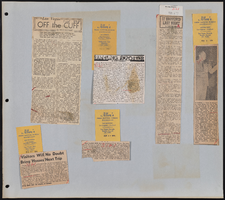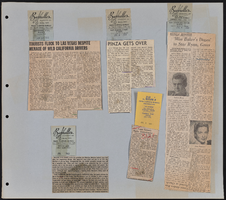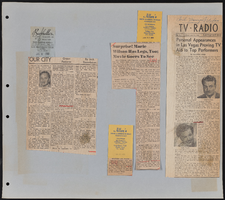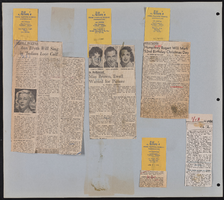Search the Special Collections and Archives Portal
Search Results
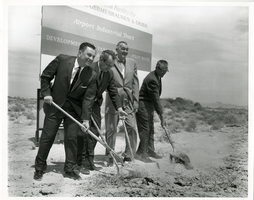
Photograph of Mayor Oran K. Gragson attending the groundbreaking for a new research facility for EG&G, May, 1963
Date
Archival Collection
Description
Image
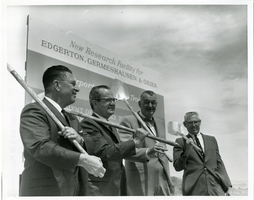
Photograph of Mayor Oran K. Gragson attending the groundbreaking for a new research facility for EG&G, May, 1963
Date
Archival Collection
Description
Image
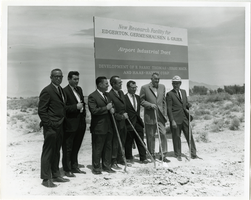
Photograph of Mayor Oran K. Gragson attending the groundbreaking for a new research facility for EG&G, May, 1963
Date
Archival Collection
Description
Image
Rachel Coleman oral history interview
Identifier
Abstract
Oral history interview with Rachel Coleman conducted by Claytee White on July 24, 1996 for the Women's Research Institute of Nevada (WRIN) Las Vegas Women Oral History Project. Rachel Coleman discusses her move to Las Vegas, Nevada and her first job in town, washing glasses at the Tropicana Hotel and Casino. She continues speaking about her work experience including how she was promoted to executive housekeeper at the Hacienda Resort Hotel and Casino in 1969. She then talks about how she became a representative for the Culinary Union Local 226 in 1973, how she became department head of the Union in 1981, and her experience running for Union president in 1987. Finally, Coleman recalls the atmosphere of Las Vegas from the 1960s through the 1980s.
Archival Collection
Essie Shelton Jacobs oral history interviews
Identifier
Abstract
Oral history interviews with Essie Shelton Jacobs conducted by Claytee White on February 01, 1996 and April 16, 1996 for the Women's Research Institute of Nevada (WRIN) Las Vegas Women Oral History Project. Jacobs begins her interview discussing her immediate family and siblings in detail, and how they influenced her to move to Las Vegas, Nevada in 1963. Jacobs goes on to discuss finding work in Las Vegas and her job as a housekeeper at the Aladdin Hotel, where she and eventually became a supervisor. Jacobs discusses her experience at the Aladdin including the Culinary Union, gender discrimination, employment for African Americans, and encounters with celebrities. Jacobs goes on to describe the the Culinary Union Local 226 in more detail, discussing membership, strikes, and race relations.
Archival Collection

